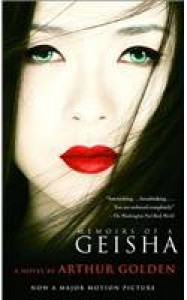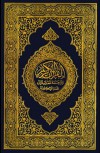Currently reading
The Crowd: A Study of the Popular Mind
Les Deux Tours (Le Seigneur des Anneaux, #2)
The Quran
 Memoirs of a Geisha. Oh my, what a roller coaster it had been.
Memoirs of a Geisha. Oh my, what a roller coaster it had been. First of all, I was reluctant to read this book because I thought it would be some sordid story of a poor geisha in some dark corner of Japan. I thought there would be rape, abuse, violence, poverty, famine, and all sort of bad things. I didn’t read the synopsis so this idea of mine on the content of the book reposed solely on the title and somehow it misled me.
I won’t put a full synopsis of the book on this review but I’ll shortly tell what parts of the plot had stuck me (this may be considered as spoilers) : 9 y-o Chiyo is pushed to become a geisha, but she struggles to find her place at Hatsumomo’s side until another geisha comes to help in. Then, as times past, comes along the men : who will become Sayuri’s (Chiyo’s geisha name)donna – her particular client? Then the war (WWII) strikes in, some others things happen (I won’t say a word on that) and it’s the end.
If any one has read my statu updates while reading Memoirs of a geisha, it’ll be easy to say that I was very fond of this book. I read more than 3/4 of this book in 2 sittings, I simply couldn’t put it down.
There are various things that made me like this book :
The fact that it’s written in the first person just suck me in completely, it felt as if someone was talking to me and I didn’t dare interrupt them and by the time I’d gather the strength to talk, I’d be so eager to know what happened that I would only beg them to continue.
Also the main character is very likeable, for she is not childish, or shallow. She is very aware of the world that surrounds her, and even if she doesn’t always speak up or fight back, you can see the cleverness in her, and that’s what makes up her strength. She is not angelic, and the author did a good job in not making a "little princess sarah" out of her (not that I have anything against sarah).
Another thing that I really liked, and that people will probably don’t understand : the descriptions. There were plenty of them (about places, about ceremonies, instruments, kimonos, hairstyles,…) but I didn’t skim over any because it just made the whole world more real and subtler than boring. It drown me further in the whole ambiance and each description felt almost like a poem, or even a dance representation. I may recognize that it might sound cliché, but somehow it didn't appear to me as cliché or overdone.
Of course I definitely liked all the characters, because they weren’t caricatures of themselves (even though they can be seen as the nice aunty, the mean rival, the dumb friend, the greedy mother), they were full and earthly if I dare to say.
About the writing style, I can say that Golden was as fabulous as a modern author can get. He managed to portray correctly the stiffness of the asian culture, where a blink of an eye or a loud laugh can be interpreted as the bleakest thing of all (even though, no matter as well written i found it, it's not representative of the Japanese culture). I particularly enjoyed the dialogue because they were indeed different of what we might hear in western civilization and it felt subtle to me that the author put efforts into putting a distinction. I think this is what most of people call as “a pretentious writing style”, that or maybe all the metaphors he put in, as to me it appeared delicate more than anything.
Something else that I noticed and enjoyed, is that even though the narrator doesn’t grow old as the character of her story does, there is style a maturation thorough the book in the writing style. There is of course the maturation of Chiyo but more than that, there is a change is the narration as well and it really impressed me.
On a personal note, I am someone who is usually put off by a big difference of age in a fictional couple (I don’t know what’s wrong with me, since I have no problem with it when it’s real people) but here I didn’t think twice about it. Not even about the mizuage (which could be translated as “selling someone’s virginity out”).
Now, for the points I didn’t like : the last part of the book.
Everything that came after the end of the war just seemed extremely average to me to my own astonishment. The story development was still realistic but somehow the rhythm of the story was broken, especially because of Sayuri obsession over one man. Interesting things were happening all around and could have happened but the author grew just as engrossed as his character on the romance to settle in before the end of the book. All along I somehow understood Sayuri’s excessive attachment to the man because he was the symbol of all her life as a geisha. But he was nothing more than that really, so after the war, I didn’t expect her to be still obsessed over him, she was even more eager to have his attention that she seemed shallow, stupid, disrespectful, inconsiderate, foolish, … If the man had just disappeared from the story, I would have found it weird and nothing more but the obsession storyline made me angry.
There was no wisdom anymore (even though Golden tried to trick us with some random sentences), we just stepped into full pathetic chick lit mode (and poor one that is : untrustworthy friend, love triangle, moral duties, puuulhease).
The charm of the geisha world was fully broken in my perspective. We still had a glimpse of tea parties and drinking games, but they felt like imposture and oddly, as if the author was fully aware of the decadence, he introduced a new character that spoiled them all anyways.
Sayuri, for whom I had respect until now, appeared to sink into stupidity, just look at her plans to evade her soon-to-be donna. And all the characters except her one man, faded away.
Maybe I just started to grow tired of the book but I can’t help but blame the author. By the time the denouement was fully settled (spoiler : the kiss), I had stopped caring at all about the book. Each word that came after that was considered as ramblings to me. United states? All right. Illegitimate child? Yawn. Last bit of wisdom? ZZzzz.
In short, my rating would be 4 stars out of 5 for the story up to chapter 28 (because even though i really like it, it is far from perfect, i won't be fooled so easily). Anything after that, I’d give it 1.5 stars.
Now, to the serious stuff. I acknowledge the cultural controversy since the author is anything but a Japanese geisha. But sadly it didn’t prevent me from enjoying this book (it's like junk food, you know it's bad, but you still enjoy it). Well, not until I came across this quote that I found utterly ridiculous: “All the stories about invading American soldiers raping and killing us had turned out to be wrong, and in fact, we gradually came to realize that the Americans on the whole were remarkably kind”. My point is that I fully acknowledge that this book is a work of fiction and that Memoirs of a geisha should NOT in ANY way be considered as a reliable source on Japan and its culture. I am not trying to sound offensive when i write that this book is in fact an enjoyable, easy readable, well written piece of junk. I do not condone the cultural appropriation.





